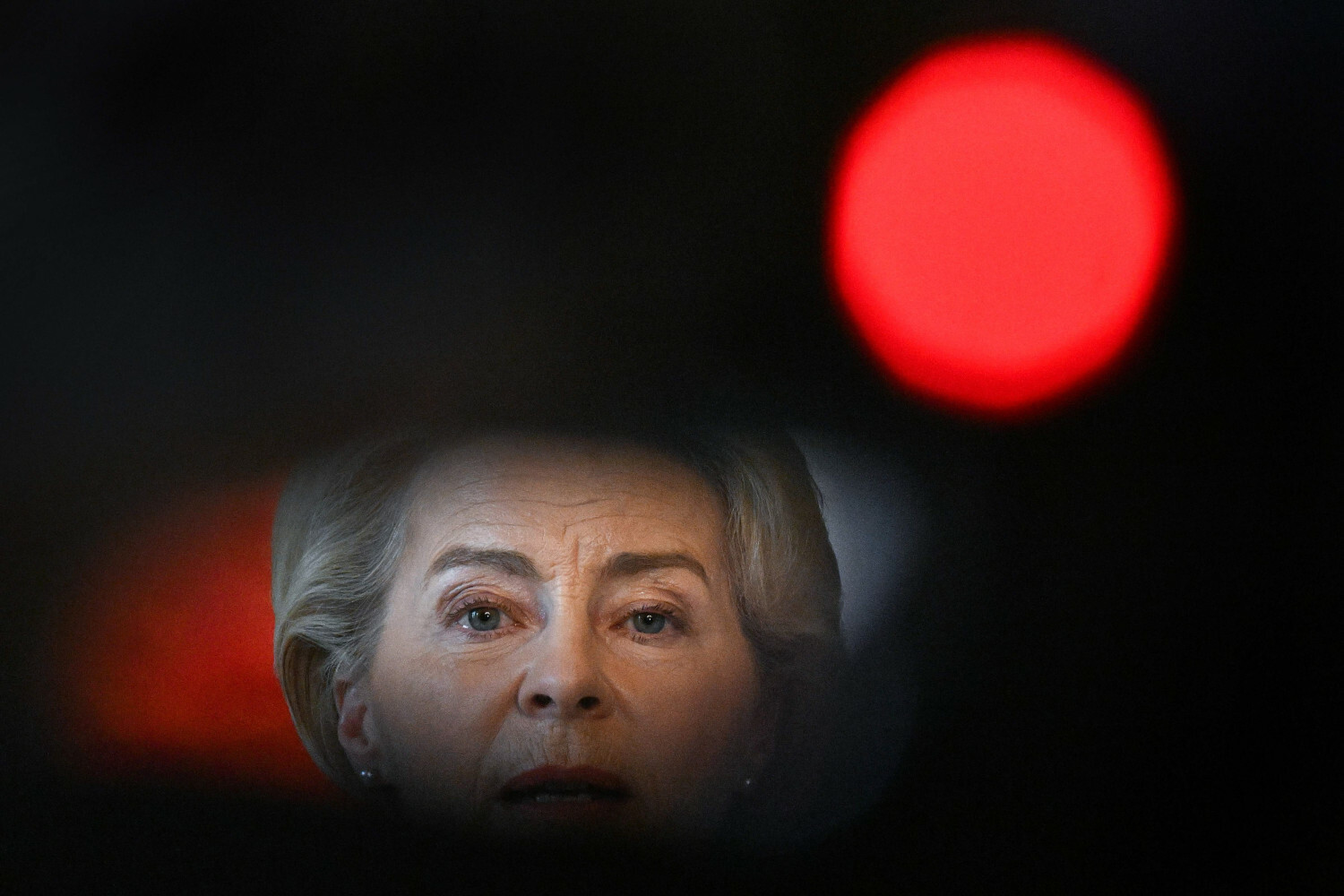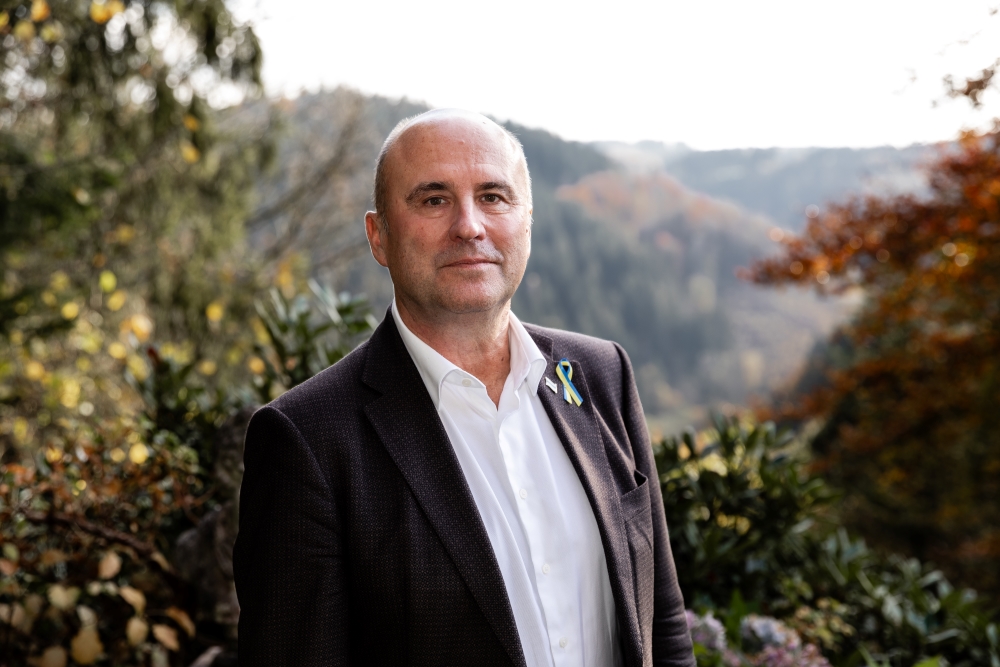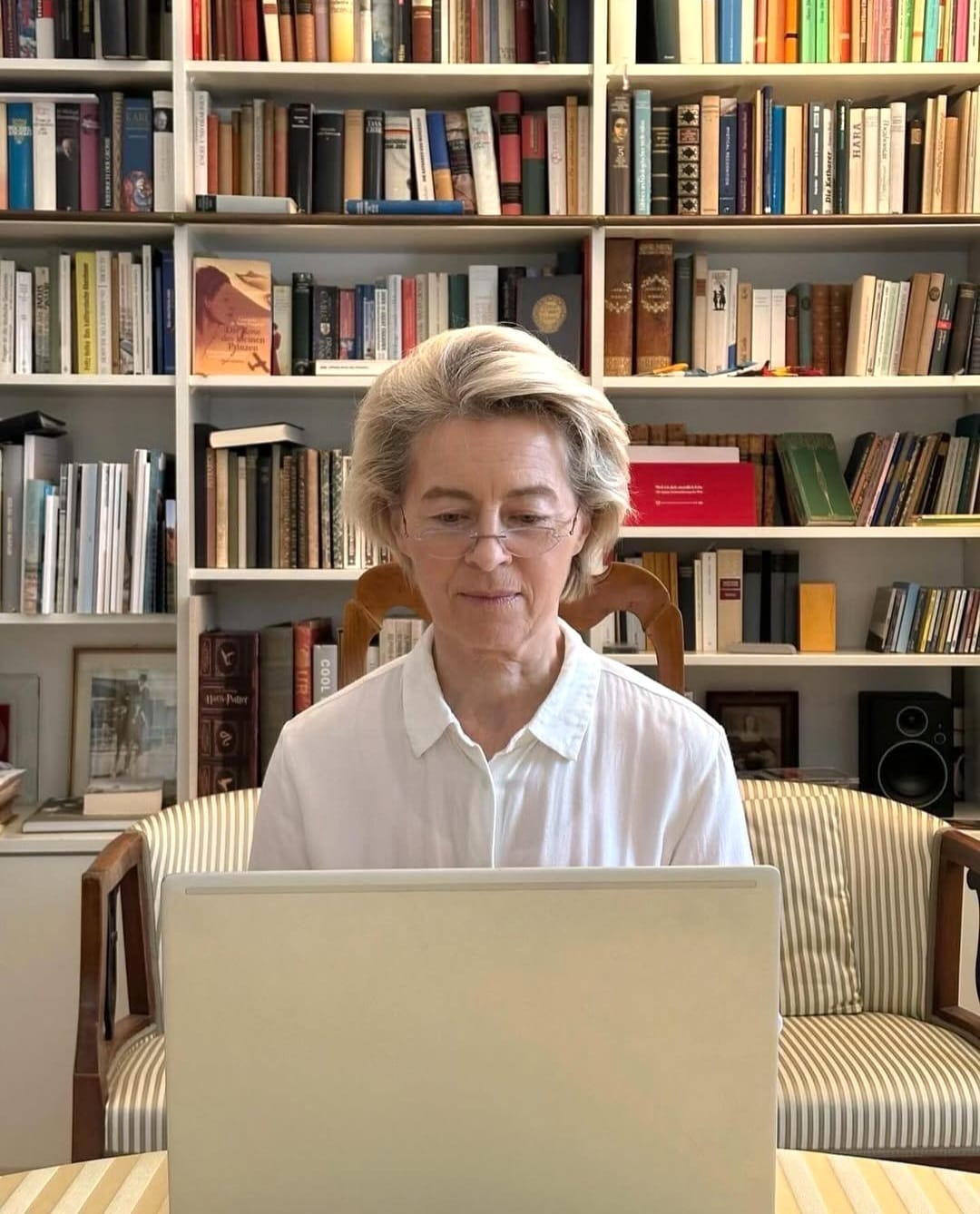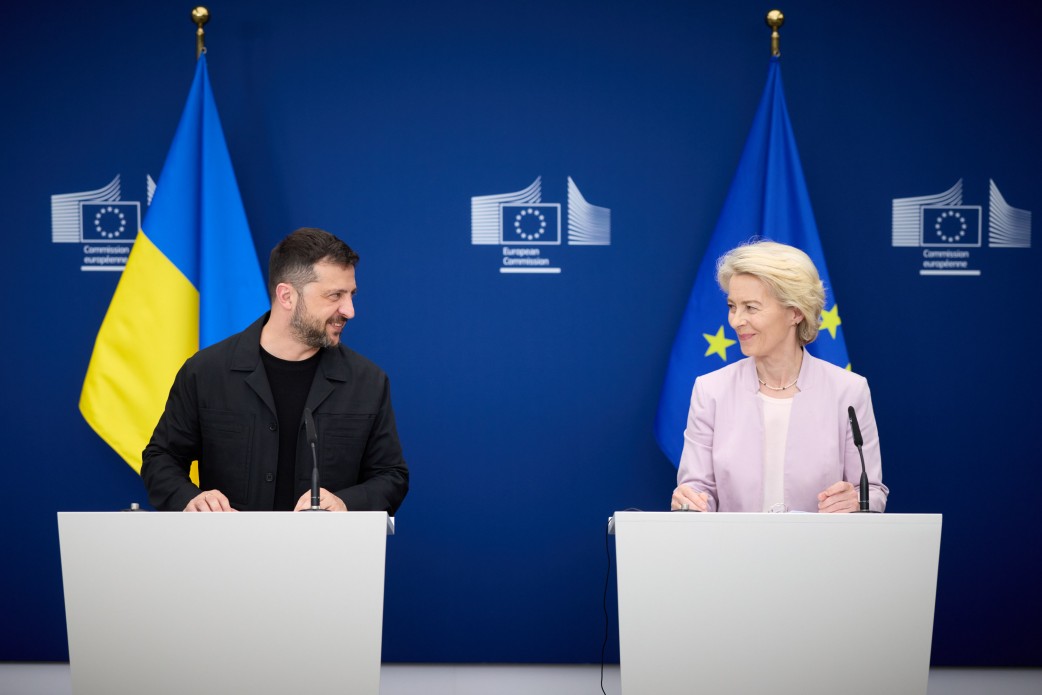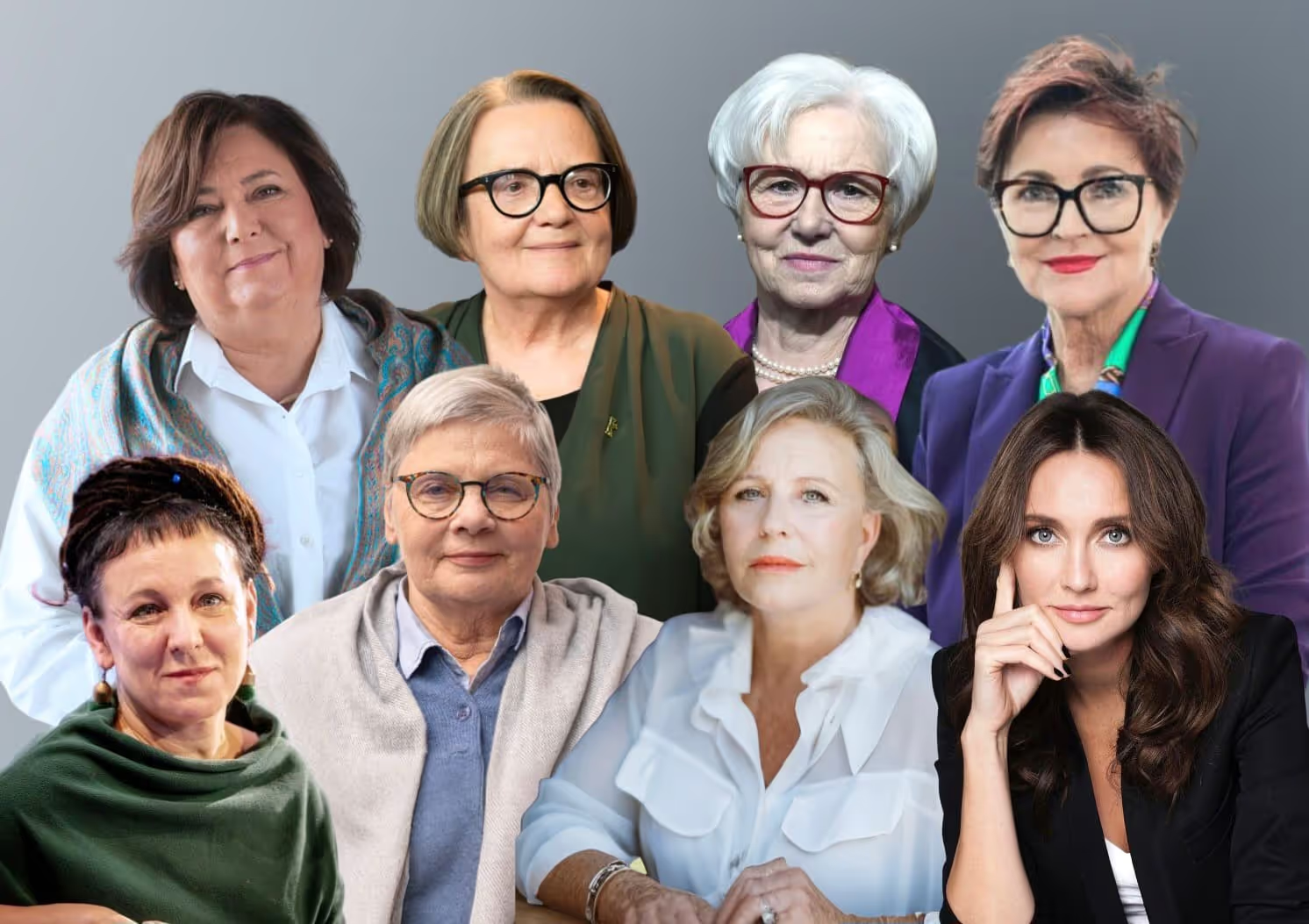Support Sestry
Even a small contribution to real journalism helps strengthen democracy. Join us, and together we will tell the world the inspiring stories of people fighting for freedom!
The «Green Border» by Polish director Agnieszka Holland was released in Ukrainian cinemas. It premiered last year at the 80th Venice International Film Festival. The «Green Border» film received a special award from the jury. It was also given the title of the best Polish movie of the year. Mariia Gorska, the chief editor of the Sestry.eu portal, met with Agnieszka Holland on the eve of the movie’s premiere at the Venice festival. To your attention - an interview with the outstanding Polish film director, that was first published on the portal on September 22 2023.
We’re meeting in Lady Agnieska’s old apartment in Warsaw. A live legend opens the doors for me. I brought white lilies to thank her for the movie about Holodomor [«The Price of Truth» premiered in February 2019 at the Berlin International Film Festival. - Edit]. We sat at a table underneath the painting «Saturn Devouring His Son» by Francisco Goya. I show Lady Holland the movie trailer that I brought on a flash drive from Ukraine. This is a part of the working material for the film saga about the writer Stanisław Vincenz - Homer of the Hutsuls. We were filming this movie in the Carpathians with a Polish-Ukrainian team before the war.
From the Polish side, Lady Holland’s friends were working on the movie about the author of the Hutsul epic «On the High Uplands» - among them were film director Jan Kidawa-Błoński, camera operator Łukasz Hutt and other artists. I often see their group photos from protests for democracy in Warsaw on Facebook. Oleg Drach was supposed to play Vincenz in our movie. He also appears in Holland’s latest movie «Green Border». We watch the trailer for the movie about Vincenz where I’m playing as his wife. In the finale, we are fleeing by foot through the snowy Carpathian mountains from the Soviet occupation with our children and a suitcase. I’m thinking about the plans impeded by the war and all the displaced people like me.

We’re drinking strong black coffee, eating chocolate and talking. About tyrants and the nature of evil, about Ukrainian cinematography and helping the people on the frontlines. And also about the movie by the prominent director, «Green Border» which tells the story of how Putin and Lukashenko used migrants as weapons.
Mariia Gorska: Your previous film - «The Price of Truth» - is about a journalist who wanted to tell the world the truth about Holodomor in Ukraine more than anything. During the filming of «Green Border» you’ve worked as a journalist yourself. In preparation for the film, your team conducted hundreds of interviews with activists, border security, doctors, policemen and refugees. What’s it like to work on a problem that we’re still seeing on news reports on our TV screens?
Agnieszka Holland: From this point of view, this is a unique movie. Usually, artistic films tell stories about things that have already happened, that have been «frozen in amber», so to speak. Obviously, the situation is different in the case of the full-scale invasion - both today and back when the war started in Donbas after the annexation of Crimea. Ukrainian filmmakers were quick to react to that. I have had the impression that the world is standing on the edge of an abyss for a long time now. And if we don’t build a bridge over this void we will fall into it.
I’m just doing what I do best - movies that display danger, are shocking and impressive, movies that enable the viewer to understand and experience something on a deeper level
What issues, important for the viewer and for you as an artist, are raised in «Green Border»?
It is taboo to talk about what’s happening on the border between Poland and Belarus. Terrible things are happening there that cast Polish official services in a less than favorable light. We on the other hand talk about it aloud. It is about the fear of the «Other», who will suddenly come and disrupt our comfort zone. We fear such people, we fear the unfamiliar, we fear poverty, we fear otherness - different skin colour, different religion, different smells. We fear that they (refugees) will come and take away our comfort, our habits, our culture.
This fear is so potent that populist politicians, who are oftentimes autocratic and even totalitarian like Putin, exploit it. He sensed that the European Union is wealthy, rich and somewhat lazy - and it's very easy to destabilise it with this refugee threat. Populist politicians say: «We will stop them! But others (the opposition) will let them in and then this horde will overwhelm you! And these are terrible people - they spread germs and parasites, they hate women, they rape, they are pedophiles, zoophiles, terrorists.»
These migrants are so dehumanised that they cease to be seen as human beings in the eyes of many nations. And in such a situation, anything can be done to them, isn’t that so? We have already gone through this in the past and the recent history. When someone is not seen as human to us, but just as a cockroach, it becomes no problem to destroy them. This is what I’m afraid of.
I'm afraid that if we don't stop now, we'll be moving towards acceptance of extinction. That's what my movie is about
This movie caused an outrage in Polish mass media…
During the time of PiS (Law and Justice) government, state media didn't like me. They said, "The script was written by Putin and directed by Lukashenko," suggesting that I serve Putin and Lukashenko. To some extent, it's true because the script for this story was indeed written by Putin and Lukashenko directed it. Representatives of the free world in the European Union, like us, are assigned certain roles – just like refugees. However, the question remains open: which roles will we choose and whom will we play in this terrible mystery?
150 million people are fleeing from war, climate change and starvation - they are knocking on Europe’s door. What could be done to resolve this situation?
There are two options: either we become mass murderers, start bombing the boats in the Mediterranean Sea, install machine guns at the Belarussian border and start shooting, or we come up with something that will enable us to coexist and help each other.

The Poles have opened their homes and their hearts to Ukrainians who were fleeing the Russian war. What is your view on this?
The Poles were profoundly emotional when the full-scale invasion began.
People weren’t helping just to post photos on Instagram; they genuinely invested their time and money and sometimes even took risks by travelling deep into Ukraine. Many of my friends went there
They transported refugees, body armor for soldiers, medicine and animals. This was sincere and profound assistance that remains an important memory.
And when some PiS politician comes later and says that Ukrainians are ungrateful, I want to slap him in the face. Helping someone and demanding gratitude is a complete lack of class.
Ukraine is grateful to you! I would also like to thank you, Lady Holland, and Poland for your support. Has there been any story that has touched you personally?
We became good friends with Sasha Kostina’s family, the producer of «Pamfir» [a 2022 Ukrainian movie about a man’s return to his home village where he is forced to encounter the smuggling business that he tried to escape from for many years once again. - Edit.]. They’ve lived at our home in Brittany for a couple of months. It was a difficult time; everyone was in shock and had psychological trauma. They adopted a tiny baby from a hospital for premature babies. We were all with that little girl and a very kind and good boy, Timur, who was also born prematurely. I saw their suffering.
I used to be an emigrant myself, in Paris, many years ago. During martial law, I was abroad and suddenly found myself cut off from my family, with nothing but a suitcase. Since I had given several interviews against the regime, I couldn't return. That first year was very difficult until I managed to bring my daughter home. Therefore, I fully understand what such people feel. Those who fled from the occupied territories and have nowhere to return to, and those from Kyiv, Kharkiv, or Odesa, who live in constant stress.
Have you seen «Pamfir»?
Yes, I have. I saw this motion picture in 2022 in Cannes. Very powerful. I have also watched some other very good new Ukrainian movies, such as «Klondike» and «Butterfly Vision».
As an expert at the Ukrainian State Film Agency, I read the script for «Butterfly Vision». Maksym Nakonechnyi is a very talented young director, and Iryna Tsilyk wrote a powerful script. By the way, she is one of the authors of our online magazine «Sisters».
Me and Iryna are good friends. In 2022, we were on the documentary film jury at Cannes.

She probably told you about life in wartime Kyiv, which somewhat resembles Warsaw during the Warsaw Uprising [Agnieszka Holland’s mother, journalist Irena Rybczyńska-Holland, participated in the Warsaw Uprising. - Edit.]. Why does history repeat itself?
It’s because we haven’t learned anything. When I was filming movies about World War II (three of which are about the Holocaust), people asked me: «Why are you making movies on this subject? It’s nothing but history». And I would reply that I make them because I have the impression that this is not just history, that this threat can awaken at any time, and that the Holocaust was a kind of a vaccine for Europe and the world, but this vaccine has stopped working. It has passed, and we as humanity are once again ready for any crimes, horrors and tortures of apocalyptic scale.
Massive casualties, weaponised sexual violence, tortures and murders of thousands of city and village residents - today we’re observing the same things once again: in Izium, Kharkiv, Kherson and towns on the outskirts of Kyiv. What is this phenomenon of Putin and modern Russia, in your opinion? How could such cruelty and savagery be explained in this day and age?
This can only be explained by the nature of evil.
Humanity is inclined toward the evil. Nothing can hold back the evil’s potential if the mechanism is set running even by a single human being
It seemed as though there would no longer be any wars like the First or Second World Wars after the invention of the atomic bomb and other methods of remote warfare. But what is happening in Ukraine right now, what this frontline looks like, reminds me of the First World War. They sit in trenches on one side, they sit in trenches on the other side, advance by a kilometre, mine the area. It feels as though it’s not happening right now, as if it’s not real and as if it’s some kind of a historical reconstruction.
I have the same impression. The distance in time between today and World War II seems to have shortened with Russia’s invasion of Ukraine. I am currently reading Remarque. And when I scroll through my social media, seeing photos from the frontline, from the trenches, it feels as if the book is coming to life - pure horror.
And at the same time, life goes on as usual just 500km away. And after the initial strong emotions passed, no one even turns on the TV when the news about the war is on.
What are your thoughts on Putin? If you had to make a movie about him, what would be in it? What makes 120 million Russians obey him?
I think it is due to his confidence and voluntarism. Most of the 20th century’s tyrants weren’t great people. Hitler was a pathetic little manchild, Stalin was some kind of a tiny «beak-nosed» Georgian. I'm not just talking about physical traits, but also about the fact that they didn't have any unusual intellectual qualities. They all had some kind of psychopathy.
I believe Putin could also be labelled as a psychopath, a clinical narcissist. Such people become truly dangerous when they push the button that forces everyone to follow them. Just like the Pied Piper, right?
The Pied Piper plays the flute, and people, as if enchanted, follow him, believing that he will lead them to a place where they will be happy. In a sense, Putin is a copy of Stalin, but he is less interesting than the original. He is a disgusting person who does a lot of evil. The world would be a better place if he were to disappear from it.
There are still leaders in Europe who seek agreements with Russia. Pope Francis addresses Russian Catholic youth as the heirs of a great Russia, a country of outstanding culture and humanity. However, Russian culture is an imperial culture, and the history of this country is soaked in blood. Why are some Europeans still oblivious to this fact? And what will become of Russia in the future?
It’s common among world leaders to think that Russia is too big to leave behind. It’s not going anywhere so they believe they need to find ways to live with it and build relationships in such a manner that it becomes more beneficial for Russia to be peaceful. This was the plan, wasn’t it? Only later did it become clear that they were acting irrationally. All authoritarian regimes, especially those led by one person with a personality cult, do not act rationally. For them maintaining power is more important than the economic situation, the welfare, or the happiness of their citizens. These things are secondary. The citizens of an authoritarian country do not need wealth and happiness. They need to be forced into believing that only this particular leader, only this dictator, will save them and lead them to a better world.
Russia is a terrible country. And it is terribly unhappy. After all, the victims of all these Russian tyrants are the Russians themselves.

What else can we do to make Putin lose in Ukraine? Russia's mobilisation potential is enormous. They are prepared for a prolonged war and to inundate the entire world with the bodies of their soldiers.
A nuclear button can only be neutralised by another nuclear button. The crisis of Western democracy lies in the politicians’ lack of long-term perspective. Not so long ago, it was said that they act from election to election. Now, I believe, they’re just acting from poll to poll. And Putin is counting on this.
The danger is that this could stabilise and become trivialised as a conflict that simultaneously seems active and suppressed. This could drag on for years. But then the question arises: what country could endure this - and how would people withstand it?
This war must end! Not smolder - so that people don’t have to live as if they are on a volcano that’s about to explode
Ukraine needs larger amounts of money and high-end weaponry. And Western politicians must close their eyes to the fact that these weapons will be used beyond Ukrainian territory.
We’ve received major military support thanks to our friends like the Poles.
It is a «win-win» situation that benefits all of us - both Ukrainians and Poles. And when two sovereign nations work together, building trust and cooperation, the whole humanity benefits from it. This is especially important in the case of Poland and Ukraine due to our geopolitical situation. We share a common enemy and a common threat - Russia. Even if Putin disappears tomorrow, there is no guarantee that another head of the hydra won't emerge, is there? And there are no guarantees that the Russian people will be able to organise themselves in a democratic, non-imperial way. Therefore, we are compelled to cooperate. For us Poles, Ukraine is a guardian of our independence. On the other hand, without Poland, Ukraine will not enter Europe. We are Ukraine’s neighbours and one of its closest allies.
Many Ukrainian women, scattered around the world because of the war, read our magazine. What do you think of these women? What would you like to tell them?
You, Ukrainian women, have every right to fight for your life, your dignity, your children and your future. Do not let yourselves be oppressed and don’t think that you are not entitled to anything. Your compatriots, on the other hand, should understand that in the countries where they find themselves, people live differently. Therefore, Ukrainian women should also open their hearts and be sensitive to the identity, needs and traditions of those welcoming them.
What would you say to the residents of countries accepting Ukrainian refugees?
I would say that you should just help the people in need coming your way.
This dimension of help - human, personal, the most intimate - is the most important, for it builds the strongest bonds
On its course into the EU, Ukraine is forced to develop democracy amidst war. Poland travelled this path a long time ago - «Solidarity’s» victory inspired people on the Maidan. But your democracy is also threatened. Together, what can we do to protect our values?
We should keep an eye the hands of the politicians. We cannot let ourselves be fooled by fairytales, both in Ukraine and Poland. It is difficult because it is much easier to lie, manipulate and spread propaganda.
Politicians are not ashamed to use new technologies and let the genie out of the bottle by doing so. Soon, an ordinary human will not be able to distinguish the truth from lies
Social, not political institutions for truth research that will equip people with tools to distinguish truth from fake news should be created. And people should start doing it while they are still in school.
This sounds like a task for people like Gareth Jones, but is there anyone like that in the modern world?
Of course.
What world are we going to live in after the war?
We are going to heal our wounds and rebuild ourselves. There will be positive reconstruction energy, though there will also be much trauma, suffering and mourning. Europe and Ukrainians in particular will need a lot of optimistic enthusiasm.
It is important that this does not turn into a sense of inevitability described by Timothy Snyder. After the Second World War, it seemed as though the greatest trials were already behind us, but it turned out that evil still lurks among us and tends to its wounds.
It’s true.
Snyder also wrote about twenty lessons from the 20th century on tyranny. Which lesson is the most important to you?
The fact that there is no vaccine for tyranny. The worst-case scenarios will inevitably reoccur.
But you are an optimist! During the last hundred years, humanity, civilisation and human rights have evolved tremendously!
Yes, human rights have expanded. Social groups deprived of all rights have gradually gained them, and now humanity has become more inclusive. It even includes the welfare and rights of animals and plants.
So then, perhaps, we do have the chance to build a safer world?
This is a utopia. We are moving forward in small steps, but it's not a steady march. It's paroxysms: two steps forward, three steps back. Along this path, terrible events take place, suffering, torture and crimes occur. And then we move a little further again. This is not an optimistic path to a bright future; it's suffering and a struggle for every bit of freedom.
All of your movies are about moving beyond boundaries. What boundaries would you never cross?
The boundaries of humanity. We must always see a neighbour in another person. Of course, there are wars, when, for example, there's a Russian in front of us, and a soldier must shoot. But in all other situations, we cannot allow other people to become objects of hatred.
Thank you for this interview and for supporting Ukraine!

Chief Editor of the online magazine Sestry. Media expert, TV host, cultural manager. Ukrainian journalist, program director of the TV channel Espresso, organiser of international cultural events significant for Polish-Ukrainian dialogue, including the Vincenz projects in Ukraine. She was the chief editor of prime-time celebrity lifestyle shows aired on STB, 1+1, TET, and Novyi Kanal TV channels. Since 2013, she has been a journalist at the Espresso TV channel, hosting the programs «Week with Maria Gurska» and «Saturday Political Club» with Vitaliy Portnikov. Since February 24, 2022, she has been a host of the wartime TV marathon on Espresso. She is temporarily residing in Warsaw, where she has actively joined initiatives to support Ukrainian temporary migrants in the EU - launching the publication Sestry with a team of Polish and Ukrainian journalists.
%20(1).avif)

